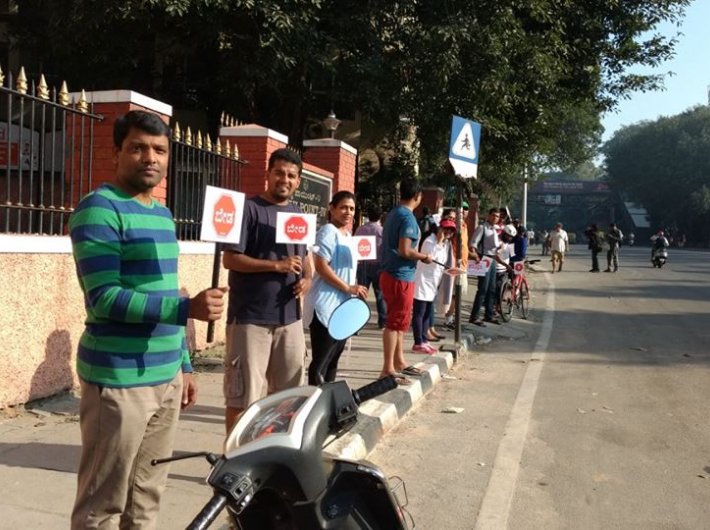The scrapping of the controversial steel flyover in Bengaluru is a fine example of what civil society can do.
Bengaluru’s overly ambitious steel flyover project, which would have led to 800 trees being sliced and diced, has been dropped. Karnataka minister KJ George said the decision was taken as the BJP was trying to cash in on allegations that the project involved an alleged kickback.
What was left unsaid was the people of Bengaluru were up in arms over the project that would have cost the exchequer more than Rs 1,700 crore and would have led to the drastic reduction in the much-needed green canopy.
The credit for the project’s scrapping goes entirely to the common people who decided that they would not allow their city to be taken for a ride. In a city like Bengaluru where traffic is a nightmare, a flyover would be a welcome step. However in this case, citizens’ protests have resulted in scrapping of the project. Enough is enough, they said. They stood their ground, even though the state government seemed to be too keen to push ahead.
The civic mobilisation was unprecedented in the recent months and showed the true prowess of what a people’s movement can do.
On October 28 last year, the Chennai bench of the National Green Tribunal stayed the 6.9-km project from Chalukya Circle in the city centre to Hebbal junction in the northern suburb, connecting the international airport road at Devanahalli and National Highway 4 towards Hyderabad.
Four months later, it has finally been dropped.
India has seen a string of such movements. These people’s movements focused on key issues.
Chipko movement, Koel Karo, Save Silent Valley, Narmada Bachao Andolan are just some of the excellent instances of people who came together to take up and issue and did not hesitate to take on the might of the state.
These movements remained, as far as possible, apolitical, which gave it a distinct hue.
In the more recent years, Anna Hazare’s campaign against corruption demanded the enactment of the Jan Lokpal Bill. The movement was a huge success. It is another matter that it led to the birth of the Arvind Kejriwal led Aam Aadmi Party (AAP), which is a political party.
In 2011, people packed the sprawling Ramlila Maidan in the national capital. It was a sea of humanity and people turned up on their own. They did not have to be invited. It was unique because residents of Delhi are normally considered indifferent to social issues. They came on two-wheelers, in cars, buses and the metro. They stayed there from morning till evening. The crowd would thin out at night, but people would always be present.
Policemen present at the spot told me that in the evening when they go back home, they change out of their khaki uniform, wear civil dress and come back to the site with their families.
India needs social movements that will shake up old and rigid mindsets and give a fresh direction to where this country is headed to.
No movement can be a success without people’s participation. Anna Hazare showed us, Bengaluru showed us. It is here that you and I count. Staying silent won't help. If you want to be heard, speak up. Otherwise, it may be too late.

